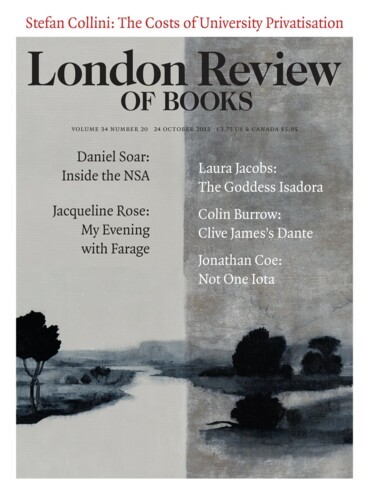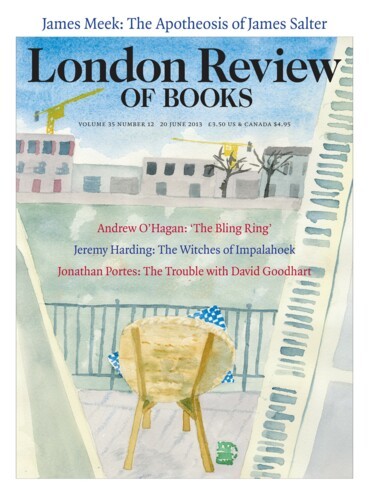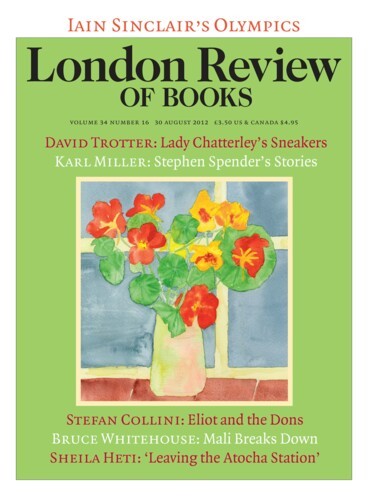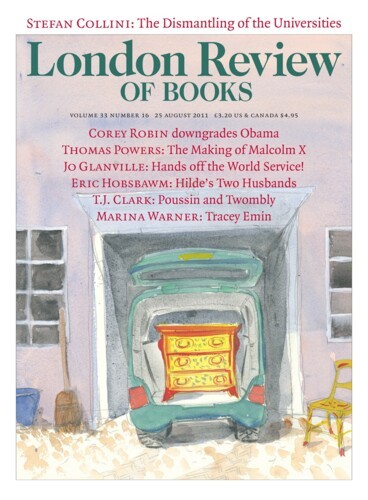Stefan Collini
Stefan Collini is the author of Absent Minds: Intellectuals in Britain, What Are Universities For? and The Nostalgic Imagination: History in English Criticism. His edition of Orwell’s Selected Essays was published in 2021. He is an emeritus professor of intellectual history and English literature at Cambridge.
Sold Out: The Costs of University Privatisation
Stefan Collini, 24 October 2013
Future historians, pondering changes in British society from the 1980s onwards, will struggle to account for the following curious fact. Although British business enterprises have an extremely mixed record, and although such arm’s length public institutions as museums and galleries, the BBC and the universities have by and large a very good record, nonetheless over the past three decades politicians have repeatedly attempted to force the second set of institutions to change so that they more closely resemble the first.
Deeper Shallows: C.S. Lewis
Stefan Collini, 20 June 2013
It is difficult to write about C.S. Lewis without giving offence. Most authors have their admirers, and literary sectarianism is hardly rare, but Lewis is unusual in being at the heart of more than one cult, having excelled in genres where attachments are warmest and the cool touch of analysis can be most resented, such as popular religious writing and children’s literature. That he was...
Buffed-Up Scholar: Eliot and the Dons
Stefan Collini, 30 August 2012
Writing in his best haughty-provocative manner, T.S. Eliot described Coleridge as ‘one of those unhappy persons … of whom one might say that if they had not been poets, they might have made something of their lives, might even have had a career’. Although the syntax allows a little ambiguity about whether the unhappiness is independent of, or consequent on, being a poet,...
From Robbins to McKinsey: The Dismantling of the Universities
Stefan Collini, 25 August 2011
Since perhaps the 1970s, certainly the 1980s, official discourse has become increasingly colonised by an economistic idiom, which is derived not strictly from economic theory proper, but rather from the language of management schools, business consultants and financial journalism.
Podcasts & Videos
Anthony Wilks's film traces the connections between the events of Eric Hobsbawm’s life and the history he told, from his teenage years in Germany and his communist membership, to the jazz clubs of 1950s...
Early and Late Kermode
Stefan Collini, Mary-Kay Wilmers, Thomas Jones and Andrew O’Hagan
Stefan Collini talks to Thomas Jones about the life and work of Frank Kermode, and Mary-Kay Wilmers remembers him as a contributor to the LRB.
Pieces about Stefan Collini in the LRB
Lumps of Cram: University English
Colin Kidd, 14 August 2025
What is the missing noun to which English refers: literature, language or both? If both, does English belong with the study of other modern languages and literatures? Is its primary concern with literature...
The Terrifying Vrooom: Empsonising
Colin Burrow, 15 July 2021
Reading an Empson essay is like being taken for a drive by an eccentric uncle in a terrifyingly powerful old banger. There are disturbing stains on the upholstery and an alarming whiff of whisky in the...
Is It Glamorous? Stefan Collini among the Intellectuals
David Simpson, 6 March 2008
George Orwell is commonly invoked as the ideal role model for the intellectual: feisty, independent, outspoken and contrarian, active in the public sphere, and famous. So it’s a surprise to...
Athenian View
Michael Brock, 12 March 1992
In seven of the nine chapters in this fine book Dr Collini depicts the denizens of the Athenaeum in its great days. T.H. Huxley, having left his umbrella at Matthew Arnold’s, asks his...
Burrinchini’s Spectre
Peter Clarke, 19 January 1984
Time was when Clio had a seamless garment: but that was before the division of labour set in. Prefixless history is now condescendingly thought of as ‘straight’ history and her...
Read anywhere with the London Review of Books app, available now from the App Store for Apple devices, Google Play for Android devices and Amazon for your Kindle Fire.
Sign up to our newsletter
For highlights from the latest issue, our archive and the blog, as well as news, events and exclusive promotions.




